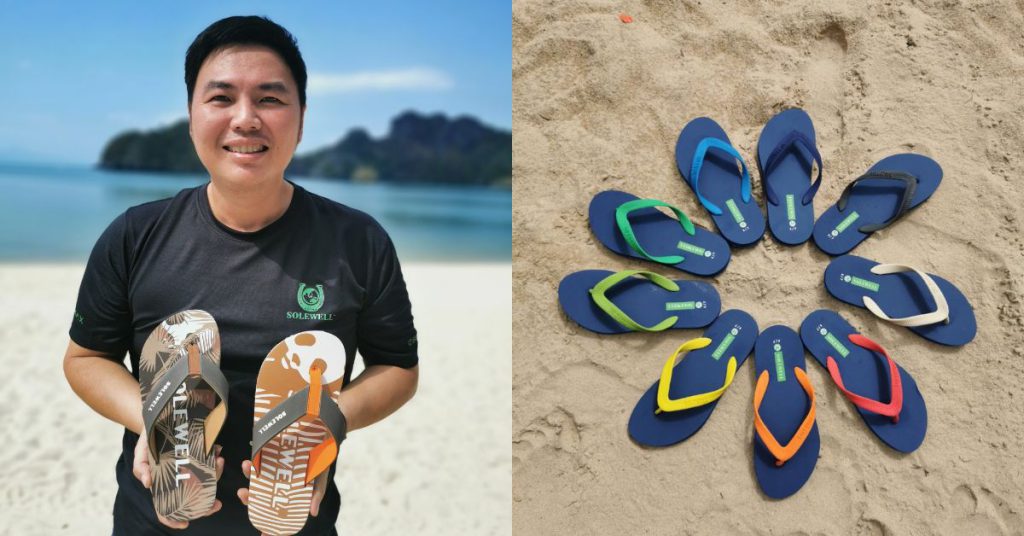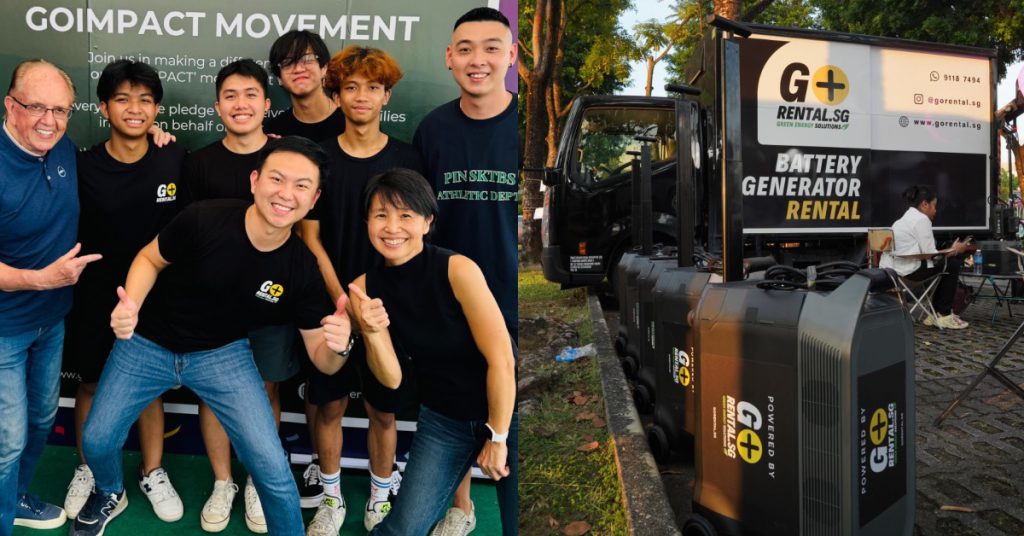Malaysia is one of the world’s largest producers of rubber gloves. Essential to a variety of industries, rubber gloves were of their utmost importance during the height of the pandemic.
Medical-grade gloves are usually made out of nitrile because this material is resistant to fats and oils in the body.
They also grew more popular due to their resistance to chemicals and solvents. Since they don’t contain any latex, nitrile gloves are said to be safe for people who have latex allergies.
As nitrile gloves undergo stringent quality inspections during the glove production process, large amounts of glove waste are generated.
“From our research, it was about 100 tonnes of waste each month that were being sent to landfills and incinerators, causing environmental hazards,” Steven Ng, founder of Geomax Rubber Innovative Products said.

With 20 years of rubber industry experience behind him, Steven launched Solewell, a brand that upcycles rejected nitrile gloves into eco footwear, in 2018.
From hands to feet
Looking into nitrile’s core advantages mentioned above, Steven realised the material could prove beneficial elsewhere. Though, he was initially on his own in this thinking.
“When I first had the idea to recycle nitrile rubber gloves, I was given remarks saying that this material is unrecyclable,” he admitted to Vulcan Post.
Plenty of trial and error happened with what limited resources and equipment he had at the time. But perhaps Steven’s extensive years in the rubber industry served him well, since most of his expertise was in the creation and manufacturing of rubber soles.

Limited funding for his project and getting the necessary laboratory testing was a challenge, he noted as well.
Through sheer determination and three years of R&D though, Steven managed to recycle the nitrile rubber gloves. Now, he claims that his eco compound is 100% recyclable with good rubber properties.
“Today we have created a new and clean green recycling technology to recycle these nitrile rubber gloves,” added Steven, who has also patented the mentioned tech.
The Eco Sandal
For the past few years, Solewell has refined its methods in making and selling a few varieties of eco footwear.
To make them, the rejected nitrile rubber gloves donated by partner factories are crushed and turned into an eco compound. Using this compound, Solewell moulds the soles for its eco shoes.
Solewell’s Anti Slip Eco Sandals are designed to make their wearer feel comfortable and safe, as it claims to be able to grip well on a watery or oily surface, as nitrile is known to be good for. The sandals have also won the Malaysia Good Design Award in 2019.

Justifying these claims, the product page states that the Eco Sandals have been tested against a 30° slope that was made slippery with oil and water. The patterns and grooves soles of the shoes were designed to grip well for its wearer’s safety.
Hence, Solewell’s shoes can be beneficial to be worn at places where water and oily surfaces are most present. They can include pools, slippery washrooms, gyms, kitchens, and the like.
For the sandals’ best anti-slip performance, the brand does recommend that the soles are clean from dirt.
These selling points for the product appear to carry throughout most of Solewell’s other shoe varieties. Flip-flops and sandals have sizes ranging from size four through 12, and cost RM25 and RM30 respectively.
“Every pair of our Eco Sandal can save 18 pairs of gloves from being discarded to landfills or sent to incineration,” Steven said.
“Our target is to recycle up to 10 tonnes of rejected nitrile rubber gloves per month. We are able to produce 10,000 pairs of soles with 10 tonnes of gloves.”

On top of open-toed shoes, Solewell also has a handcrafted leather shoe range, made up of its recycled nitrile rubber soles and genuine cow leather.
Covering greater grounds
Other than just creating its own footwear, Solewell also supplies the rubber soles it manufactures to its collaborators consisting of shoemakers who produce shoes and sandals.

For now, it appears that Solewell’s closed-toe product line caters mostly to the male market. When asked if Steven has any plans on expanding to appeal to the women’s market by developing eco heels, flats, and the like, the founder stated that the team is currently exploring the possibilities.
Other than that, the brand is also looking into other ways its eco compound can be used for more rubber products, with floor tiles being one example Steven gave.
Moving forward, one of his company’s short-term plans is to set up its own recycling factory, complete with R&D laboratory testing equipment.
Featured Image Credit: Steven Ng, founder of Solewell











